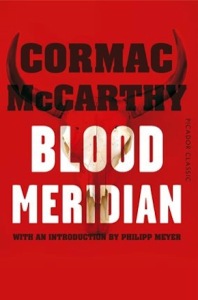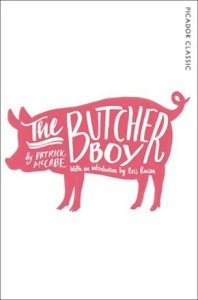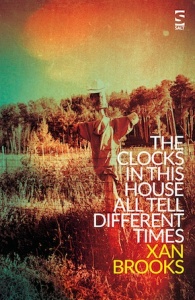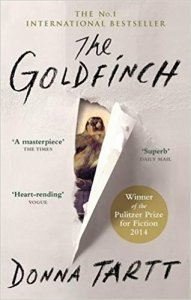Terrifying tales
by Xan BrooksChildren are the lawless adventurers in our midst, semi-detached from adult society. Eventually – in most cases – they’ll be reined in and civilised. Until then these creatures are loose in the world – raw, unformed and vulnerable. All of which makes them an ideal focus for fiction.
The books on this list are not kids’ novels as such. Rather, they are stories in which the child sensibility rubs up against real, adult horror. Sometimes this innocence is able to defuse the horror. Sometimes (more troublingly) it comes to define it. So these pages contain a mixed bag of small characters. We might variously refer to them as victims or villains, saints or sinners. But that’s judging by them by our own calcified moral yardstick. These kids speak their own language and steer their own course. And not all of them are coming home in time for supper.
A High Wind in Jamaica by Richard Hughes
No writer has navigated the choppy waters of child psychology with such cold-eyed grace as Richard Hughes. A High Wind in Jamaica (original title: The Innocent Voyage) sets out as a rip-roaring high-seas adventure and then darkens by degrees, as the colonial Bas-Thornton kids are abducted/adopted by a band of buccaneers. This is a brilliant, pitiless book, thrumming with cruelty, sexual tension and bloody violence. Hughes suggests that children – like pirates and alligators – are essentially wild at heart.
It by Stephen King
Stephen King’s It is a fat, juicy carcass in the guise of a bestseller; loaded with blood and buzzing with flies. It spins the tale of a gang of awkward schoolkids (‘the Losers’) in a deadbeat town that doubles as the hunting ground of a shape-shifting monster. King’s horror pyrotechnics are reliably thrilling. But more haunting still is his depiction of the totems, rituals and anxieties of childhood; a vibrant world that exists below the parapet of adult consciousness. I don’t think the author has ever written a more beautiful character than overweight Ben Hanscomb, lovestruck and lonesome, who finds sanctuary in the local library and walks out a hero.
 Blood Meridian by Cormac McCarthy
Blood Meridian by Cormac McCarthy
Cormac McCarthy’s masterpiece recasts the founding myth of America as a nightmarish Bildungsroman, random and savage; an engine-room of ongoing horror. Its wayward moral compass comes in the form of ‘the Kid’, a youngster in a young country, slaloming along the Tex-Mex border in the company of scalp-hunters. McCarthy’s spare, hard prose is intoxicating and terrifying by turns and it finds its perfect vessel in the Judge, a playful American Satan who points the way to the future. Assuming the Kid can stay nimble, he can outpace the danger. But the older he gets, the more the Judge reels him in.
Room by Emma Donoghue
Jack lives with Ma in a small single room that is really a shed in a garden, attended to by the malevolent Old Nick, who is his biological father. So Ma is a captive and Jack is the child of rape, which qualifies Room as a tale of black horror. And yet the wonder of Emma Donoghue’s novel is how it allows Jack to frame his own story and rearrange the room’s furniture. Innocence is presented here not so much as a virtue but as a kind of potent alchemy. Jack ennobles his surroundings, lets the daylight pour in and then eventually, movingly, sets him and Ma free.
Shadowland by Peter Straub
Just as the adolescent hero of Shadowland grows up to be an obscure stage magician, playing tatty nightclubs in front of soused revellers, so Peter Straub’s spellbinding rites-of-passage tale remains largely overlooked. It deserves better; it’s magic: a fabulous YA novel written before the label existed. Shadowland starts out as a creepy school story, then ups sticks to a fantastical house-of-games in the forests of Vermont. Along the way, Straub threads the narrative with twisted fairy-tales, tests and torments. One has the sense of an author writing on the outer-edge of control, at the point where genius tips into insanity.
The Goldfinch tells the tale of 13-year-old Theo Decker who, in the course of a New York terrorist bombing, loses his mother and gains an invaluable painting. It’s a story of trauma and loss and the shadow they cast, boldly dressed up as a coming-of-age drama. Donna Tartt’s big, satisfying bestseller duly chases its hero into manhood but I love it best during the opening half, especially that dazzling detour to the Las Vegas suburbs, where Theo and his friend Boris risk running off the rails.
The Old Curiosity Shop by Charles Dickens
“One must have a heart of stone to read the death of little Nell without laughing,” said Oscar Wilde, and you can see his point. As a lead protagonist, Nell is a drip; barely a protagonist at all, really. As a plot device, though, the girl is ruthlessly efficient; the emblem of innocence to be fought over and betrayed by Dickens’ more colourful characters (her flailing grandfather; the odious Quilp). She comes hurtling through the plot from one grubby, grasping hand to another, like a china baton in a frantic relay. Sooner or later, she’s going to break.
The Turn of the Screw by Henry James
I watched the terrific film adaptation – The Innocents – before reading Henry James’ novella and these two incarnations are now intertwined, whispering in each ear, confusing me as to which particular plot detail crops up in which text. Maybe that’s as it should be, because The Turn of the Screw is an ambiguous, open-ended affair; the fevered account of a young governess who finds herself bewitched by a pair of angelic siblings (Miles and Flora) and a ghostly face at the glass. I think she might be unstable; I suspect the kids are all right. But I need to read it again, to be doubly sure.
 The Butcher Boy by Patrick McCabe
The Butcher Boy by Patrick McCabe
What happens to the wild kids who don’t grow up, the Peter Pans who play out too late? The Butcher Boy is the fractured account of Francie Brady, a small-town tearaway who drifts into a psychotic adulthood. Rattling through town with his butcher’s cart, Francie is still fighting old battles, nursing old grievances and pining for the school friend who outgrew him. Patrick McCabe frames his misadventures as a crazy-paved picaresque. His book is hilarious, heart-wrenching and utterly terrifying.
The Adventures of Huckleberry Finn by Mark Twain
Let’s end with Huck Finn, 13 or thereabouts, who plans to light out for the territories to avoid being ‘sivilized’ by the well-meaning Sally Phelps. By the final pages, Huck has seen enough of civilisation (specifically 1840s Missouri civilisation) to know that it is arbitrary and dehumanising – a cruel black comedy dressed up as fairness. Huck is right: the world is wrong. I hope he made himself a better, freer home out west.
 Xan Brooks is an award-winning writer, editor and broadcaster. Part of the founding editorial team of The Big Issue, he was subsequently an associate editor at the Guardian, specialising in film. The Clocks in This House All Tell Different Times, his first novel, is published in paperback and eBook by Salt. It’s the story of orphaned Lucy Marsh, who in 1923 climbs into the back of an old army truck and is whisked off to the woods north of London – a land haunted by the past, where lost souls and monsters conceal themselves in the trees. Read more.
Xan Brooks is an award-winning writer, editor and broadcaster. Part of the founding editorial team of The Big Issue, he was subsequently an associate editor at the Guardian, specialising in film. The Clocks in This House All Tell Different Times, his first novel, is published in paperback and eBook by Salt. It’s the story of orphaned Lucy Marsh, who in 1923 climbs into the back of an old army truck and is whisked off to the woods north of London – a land haunted by the past, where lost souls and monsters conceal themselves in the trees. Read more.
@XanBrooks



